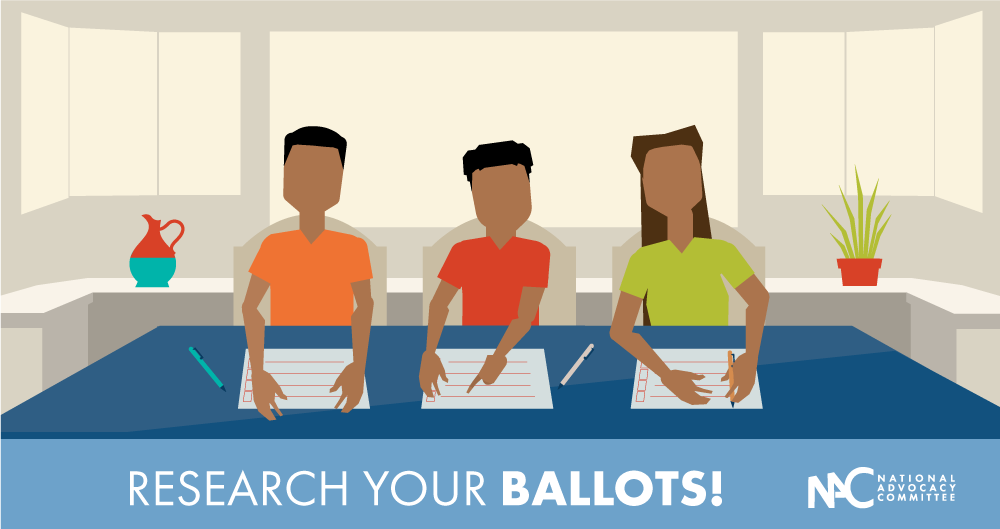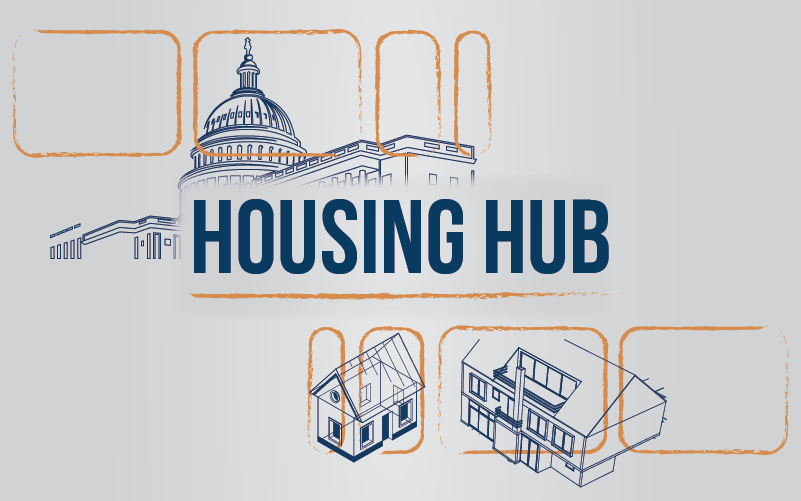Time to research our ballots!
Celebrating NAHREP familia, cultura, politics, and grassroots action
October 15, 2020
Qué onda mi gente?!
We are 19 days away from the election. I hope everyone got a chance to watch yesterday’s showdown as the NAHREP familia debated the presidential election around the kitchen table last night. My favorite thing about yesterday’s conversation was that despite NAHREP leaders having completely different political affiliations, they sat down to debate the issues with mutual respect, always coming back to the fact that we are family first.
I really dislike the statement, “Never discuss religion and politics in polite company.” That is exactly why we are so polarized today. We only talk to people who think like we do and our social media feeds are algorithmically designed to only show us posts by people with the same opinions. Unless we have deep conversations about the “why” behind our beliefs with people we love and respect, we will simply repeat the tag lines used to describe the other side, labeling each other as horrible, bad people. It’s time to find common ground and have those tough yet loving conversations with your loved ones. It starts with us.

It’s time to research our ballots!
I know that many of you already have your ballots at home ready to fill out. If not, you can still review what is on your ballot before Election Day. Like most of the country, you probably already know who you’re going to vote for when it comes to the office of the President. However, there are so many propositions, state elected officials, local measures, city council members, school board seats and more to choose from. All of the down ballot elected officials and initiatives may possibly have the biggest impact on your life.
Don’t forget, zoning is a big deal for our mission. How does your city council representative feel about zoning reform? Many school boards get decided by a handful of votes. Yet, many people leave those blank because they don’t know who to vote for, simply because they’re not inundated by all of the millions of dollars that are poured into ads like for the more high profile candidates. These people decide what kind of education your children will receive.
So with that said, here are some pointers for researching your ballot with your family. Sitting down together to research your ballot is a great way to get your children involved. They can ask questions and practice by deciding how they would vote on certain issues.
- Look up organizations and individuals you support and see if they have a voter guide. Don’t just rely on one, I usually check around 5 various voter guides. I will compare them and focus my research on the candidates and ballot measures where there are varying opinions.
- Read through the candidate websites, public statements and questionnaires candidates have filled out for the local newspaper. Analyze who is more aligned with your values and who has shown the leadership skills to take on this role.
- For low-key races like school board and city council, go to your local newspaper and search for their name and see what comes up. What have they said or done in the past? What do other people say about them?
- Look out for (and disregard) the following tactics that campaigns use to illicit an emotional response from you. Look for the facts, not cheap taglines:
- Name calling and appeals to prejudice.
- Rumor mongering. This includes things like, “everyone says my opponent is a crook.” Make judgements based on facts and actions.
- Guilt by association. “We all know the candidate is backed by big money interest” Or, campaigns will state that the candidate is backed by a controversial person. This includes AOC, Donald Trump, Nancy Pelosi, and Mitch McConnell.
- Catch words. This includes “law and order”, “un-American” or “special interest.” These are designed to trigger a knee-jerk emotional response from you not necessarily based on anything factual.
- Promising the sky. Don’t judge them on their promises for things that aren’t possible.
- Passing the blame. Analyze how a candidate contributed to a problem or solution. Analyze “hechos,” not words.
- Be careful where you get information. Make sure that allegations are backed by facts. Do a fact check search for any claims. A post on Facebook or YouTube video is NOT a trusted source. Go to a well-respected newspaper for information as the burden of proof is much higher for these sources. Here is a good media bias chart that you can use as a cheat sheet.
- For ballot measures, check out your state’s legislative analyst offices for an unbiased assessment. You can also use one of these four resources for non-partisan information regarding what’s on your ballot:
- Have fun with it! Voting is a big deal. It is our right, it is our power and it is our duty.
So, let’s put some music on and research our ballots. Show us your pictures of you researching your ballot with your family and tag us with #NAHREPVOTES #MIFAMILIAVOTA.

About Noerena Limón
Noerena Limón is NAHREP’s Executive Vice President of Public Policy and Industry Relations. Noerena heads the organization’s policy and advocacy efforts on issues ranging from homeownership, housing inventory, credit access and immigration.
Prior to joining NAHREP, Noerena spent six years at the Consumer Financial Protection Bureau (CFPB) and served as a political appointee under President Obama in the White House Office of Political Affairs.


